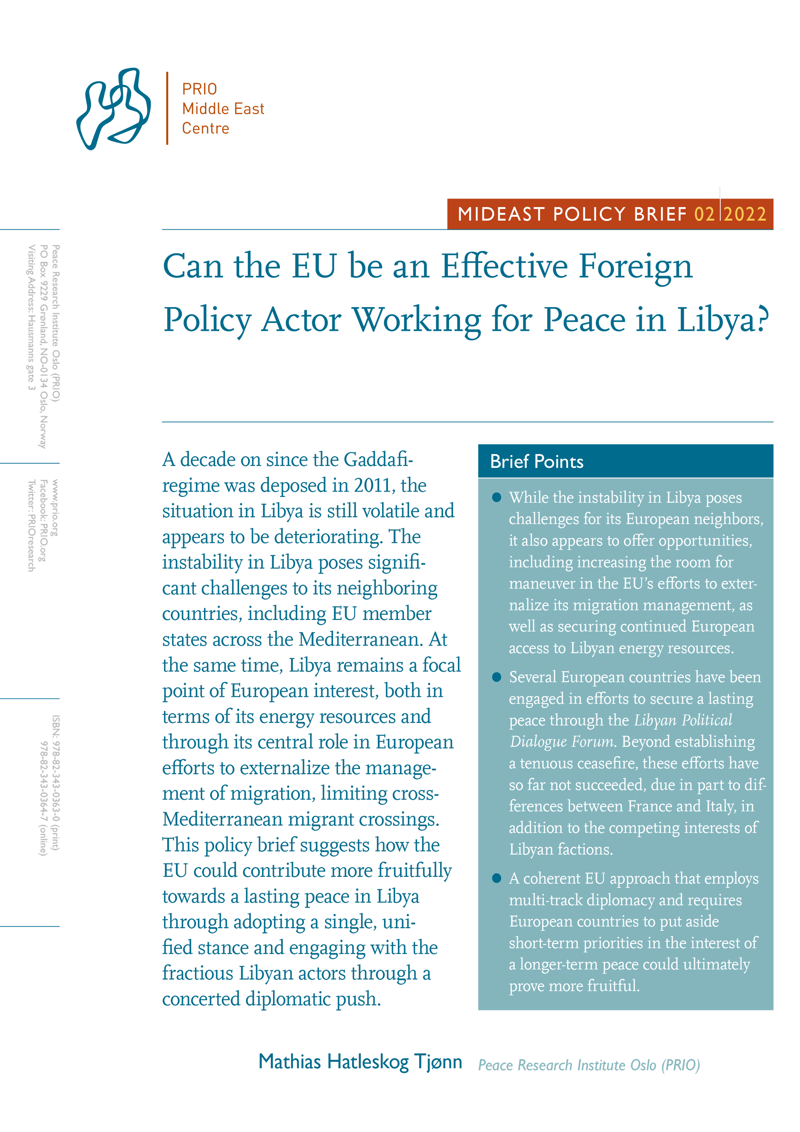
In a new PRIO policy brief, former research assistant at PRIO Mathias Hatleskog Tjønn writes about the role of EU as a foreign policy actor working for peace in Libya.
Tjønn writes that a decade on since the Gaddafi regime was deposed in 2011, the situation in Libya is still volatile and appears to be deteriorating. The instability in Libya poses significant challenges to its neighboring countries, including EU member states across the Mediterranean. At the same time, Libya remains a focal point of European interest, both in terms of its energy resources and through its central role in European efforts to externalize the management of migration, limiting cross Mediterranean migrant crossings
Tjønn argues that If the EU, including its most important member states, could speak more with one voice and work towards a shared goal of stabilizing its Mediterranean neighbouring country, we would start to see meaningful engagement and change for the better. Additionally, if the EU and central European actors started to bring Libyan interests into the equation, instead of focusing more on their own immediate goals of migration management and resource extraction, perhaps finally a lasting peace in Libya could be secured.





